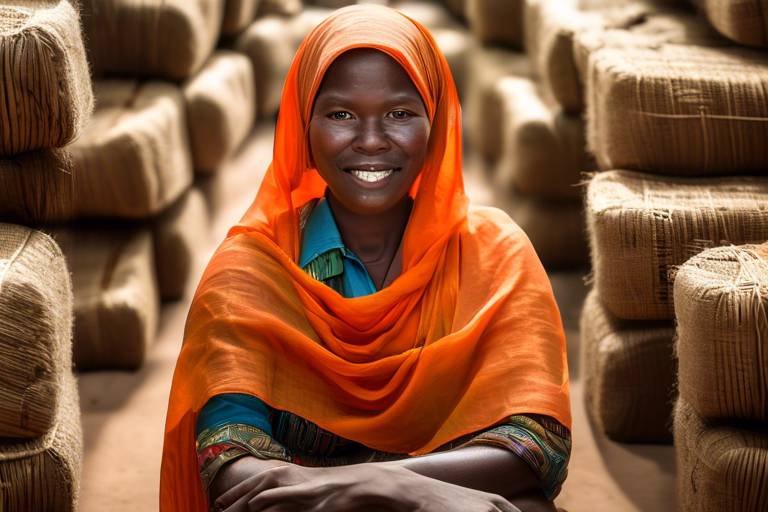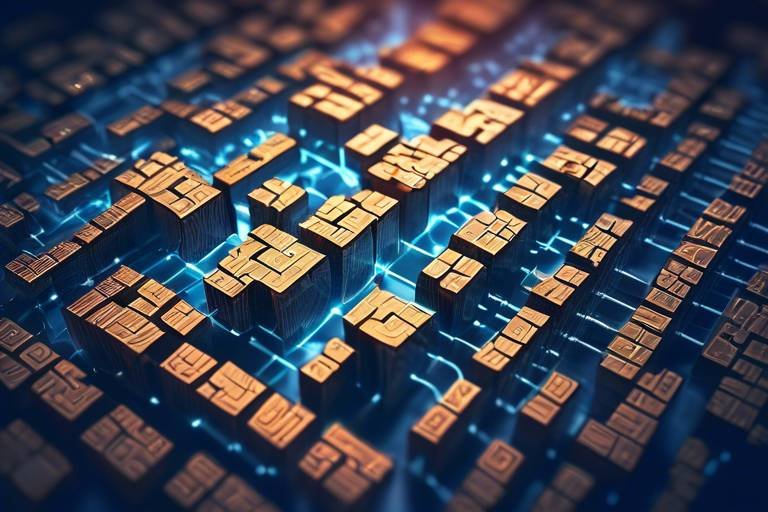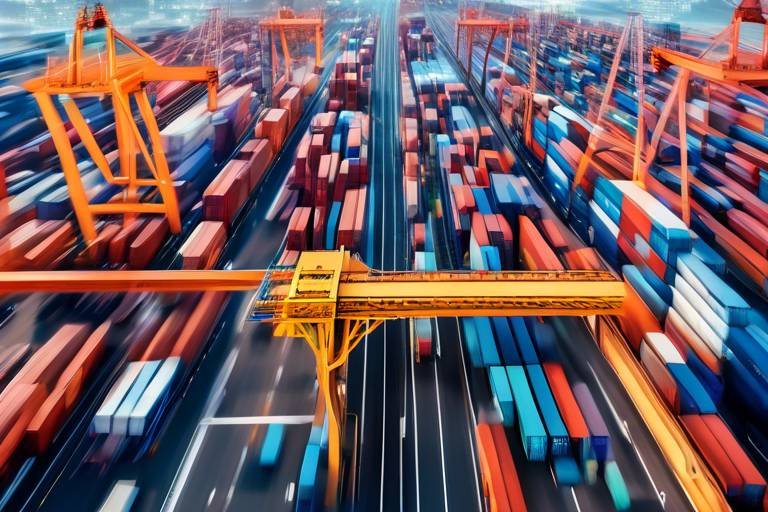The Role of Blockchain in Supporting Fair Trade Initiatives
In an era where consumers are increasingly concerned about the origins of their products and the ethics behind their purchases, the role of blockchain technology in supporting fair trade initiatives is more crucial than ever. Imagine being able to trace the journey of your coffee from the farm in Colombia to your cup at home, ensuring that the farmers received a fair wage for their hard work. This is not just a dream; it’s becoming a reality thanks to the revolutionary capabilities of blockchain. By enhancing transparency, traceability, and trust, blockchain can make fair trade practices more effective, benefiting both producers and consumers alike.
Fair trade is more than just a buzzword; it's a movement aimed at creating equitable trading conditions for producers, especially those in developing countries. It ensures that farmers and artisans receive fair compensation for their products, enabling them to improve their livelihoods and communities. However, the challenge has always been ensuring that these claims are legitimate and that the benefits actually reach the intended recipients. This is where blockchain comes into play, acting as a digital watchdog that can verify and validate every step of the supply chain.
Blockchain operates as a decentralized digital ledger, meaning that it records transactions across multiple computers in a way that is secure and immutable. This technology allows for the creation of a permanent record that cannot be altered without consensus from all parties involved. Think of it as a digital diary that everyone can read but no one can erase. Its applications extend far beyond cryptocurrency; it holds immense potential in various sectors, including the fair trade movement. By providing a transparent and tamper-proof system, blockchain can empower consumers to make informed choices and support ethical practices.
One of the most exciting benefits of blockchain technology is its ability to enhance transparency and traceability in supply chains. With a simple scan of a QR code, consumers can access detailed information about the product's journey, including where it was grown, how it was processed, and who benefited from its sale. This level of transparency fosters trust between consumers and producers, as buyers can verify that their purchases align with their values. Imagine the confidence a consumer feels knowing that their chocolate bar was sourced from a cooperative that pays its farmers fairly and invests in community development.
Furthermore, blockchain enables the use of smart contracts, which are self-executing contracts with the terms of the agreement directly written into code. These contracts automate and enforce agreements, ensuring that producers meet fair trade standards and that payments are made promptly. For instance, a smart contract could automatically release funds to a farmer once their coffee beans are delivered to a roaster, eliminating the need for intermediaries and reducing transaction times. This not only streamlines the process but also increases financial security for producers who often face delayed payments.
Decentralized marketplaces are another innovative application of blockchain technology. By removing intermediaries, these platforms allow producers to connect directly with consumers, creating a more equitable trading environment. This shift not only increases the profits for producers but also allows consumers to engage more deeply with the stories behind their purchases. Imagine buying a handmade artisan product directly from the craftsman, knowing that your money is going straight to the source. This direct relationship fosters a sense of community and shared purpose, which is at the heart of the fair trade movement.
As we delve deeper into the potential of blockchain, it's essential to recognize how this technology can empower producers. By providing them with greater control over their products and earnings, blockchain enhances financial inclusion for marginalized communities involved in fair trade. Producers can access new markets, receive fair compensation, and build sustainable businesses that contribute to their local economies. This empowerment not only transforms individual lives but also uplifts entire communities, creating a ripple effect of positive change.
However, it's important to acknowledge that despite its potential, blockchain technology is not without challenges. Issues such as scalability, energy consumption, and regulatory hurdles can hinder its widespread adoption in fair trade initiatives. For instance, the energy-intensive nature of some blockchain systems raises concerns about their environmental impact. Additionally, navigating the complex landscape of regulatory compliance can be daunting for organizations looking to implement blockchain solutions. Nevertheless, with ongoing innovations and collaborations, the future of blockchain in fair trade remains promising.
In conclusion, the intersection of blockchain technology and fair trade initiatives presents a transformative opportunity for both producers and consumers. By enhancing transparency, traceability, and trust, blockchain can revolutionize the way we engage with fair trade products. As we look to the future, it’s clear that the potential developments in this space could significantly impact fair trade practices worldwide, ensuring that ethical consumerism becomes the norm rather than the exception.
- What is fair trade?
Fair trade is a movement that promotes equitable trading conditions for producers, especially in developing countries, ensuring they receive fair compensation for their products.
- How does blockchain enhance fair trade?
Blockchain enhances fair trade by providing transparency and traceability in supply chains, allowing consumers to verify the origins of products and ensuring fair payments to producers.
- What are smart contracts?
Smart contracts are self-executing contracts with the terms of the agreement directly written into code, automating transactions and ensuring compliance with fair trade standards.
- What challenges does blockchain face in fair trade?
Challenges include scalability, energy consumption, and regulatory compliance, which can hinder the widespread adoption of blockchain technology in fair trade initiatives.
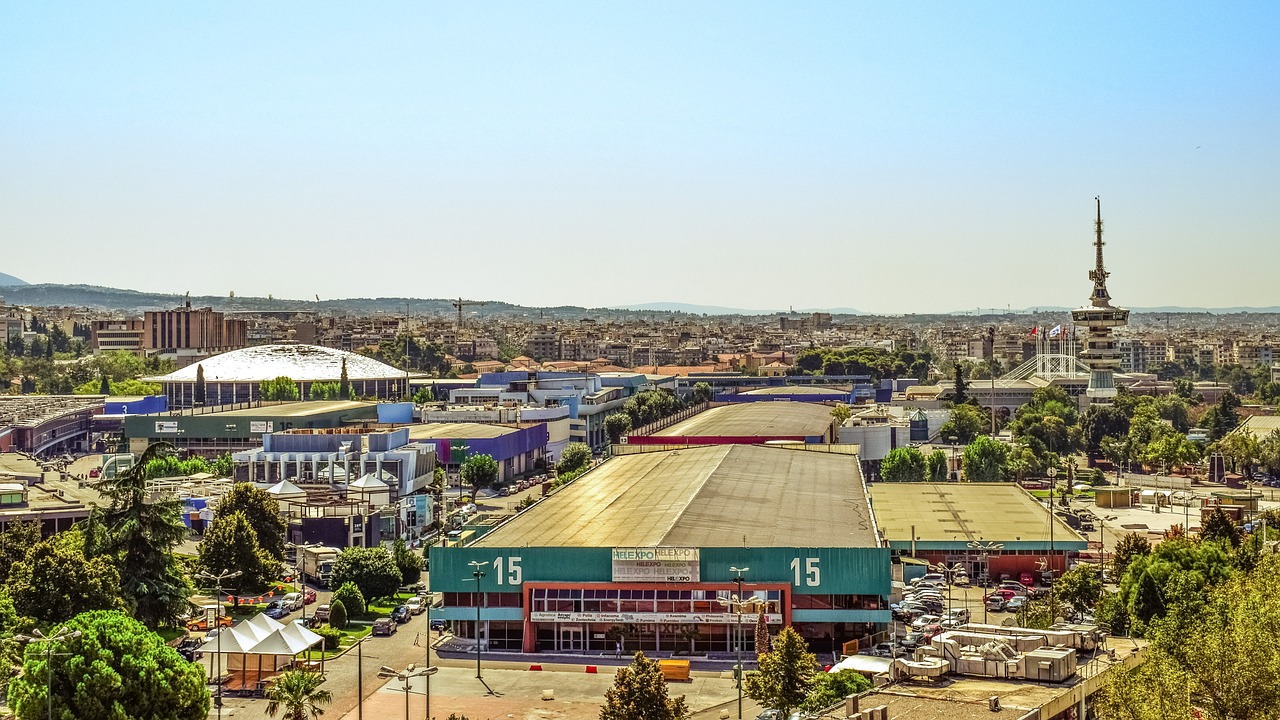
Understanding Fair Trade
Fair trade is more than just a buzzword; it's a powerful movement that aims to create a more equitable trading environment for producers, especially those in developing countries. At its core, fair trade seeks to ensure that these producers receive a fair price for their goods, enabling them to support their families and communities. But what exactly does this mean? Let's break it down.
One of the fundamental principles of fair trade is equity. This means that producers are paid a price that reflects the true cost of production, which often includes fair wages, safe working conditions, and sustainable farming practices. Imagine working tirelessly in the fields, only to find out that your hard work is undervalued. Fair trade aims to change that narrative by ensuring that every farmer, artisan, and worker gets compensated fairly for their labor.
Moreover, fair trade emphasizes the importance of ethical consumerism. Consumers today are more conscious than ever about where their products come from and the impact their purchases have on the world. By choosing fair trade products, consumers can support sustainable practices and help lift communities out of poverty. It's a win-win situation—producers thrive, and consumers can feel good about their choices.
Fair trade also encourages transparency in the supply chain. This means that consumers can trace the origins of their products, from the farm to the store shelf. This transparency fosters trust, allowing consumers to feel confident that their purchases are making a positive impact. In an age where information is at our fingertips, knowing the story behind a product can significantly influence buying decisions.
To illustrate the impact of fair trade, consider the following table that highlights the benefits of fair trade practices:
| Benefit | Description |
|---|---|
| Fair Wages | Producers receive a price that reflects the true cost of production, helping them sustain their livelihoods. |
| Community Development | Funds from fair trade sales often go towards community projects such as schools, healthcare, and infrastructure. |
| Environmental Sustainability | Fair trade encourages sustainable farming practices that protect the environment for future generations. |
| Empowerment | Producers, particularly women, gain access to resources and opportunities that empower them economically and socially. |
In conclusion, fair trade is a vital movement that champions the rights of producers while promoting ethical consumerism. By choosing fair trade products, consumers can contribute to a more just and sustainable world. So, the next time you're shopping, why not take a moment to look for that fair trade label? Your choice can make a difference!
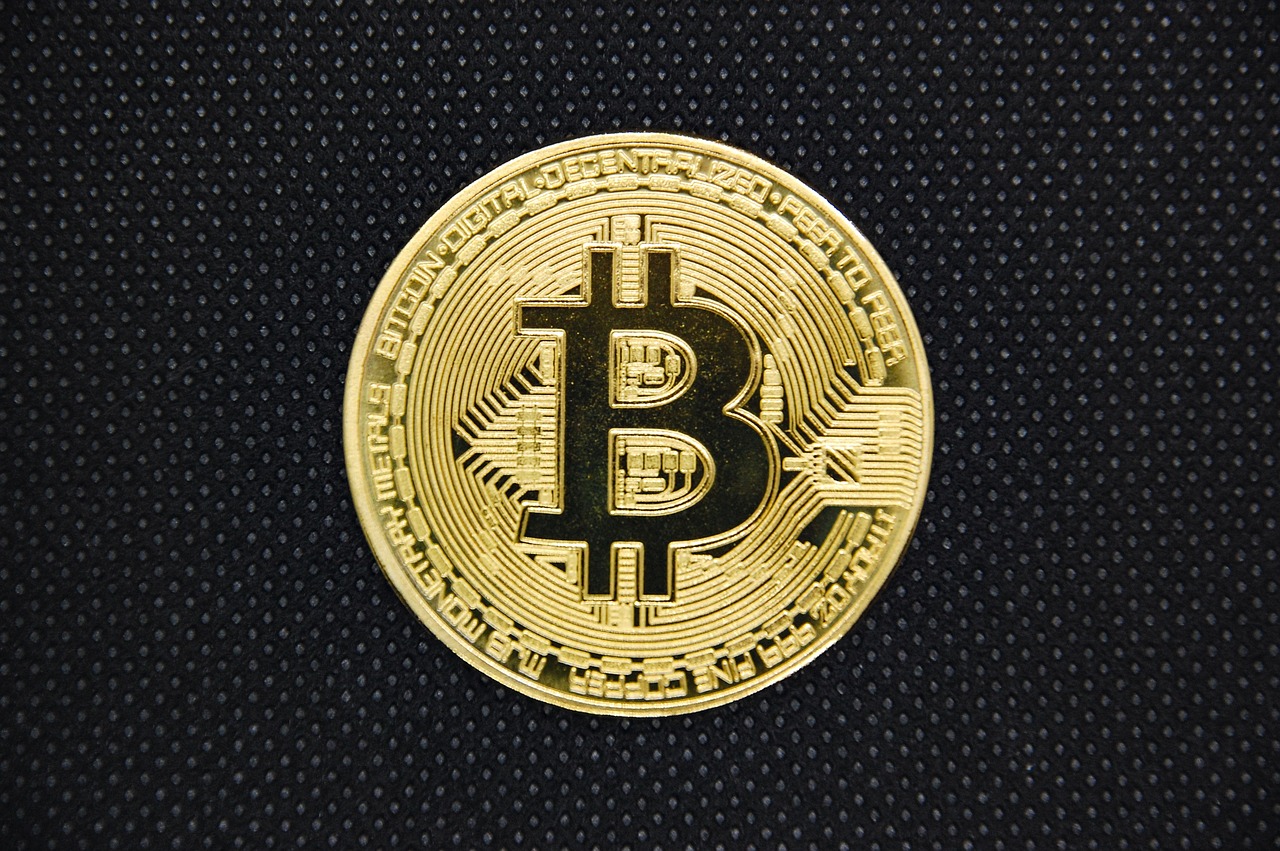
Blockchain Technology Explained
Blockchain technology is often described as a decentralized digital ledger that records transactions across multiple computers in a secure and transparent manner. Imagine a giant, digital notebook that everyone can see but no one can erase. This is the essence of blockchain. Each transaction, or block, is linked to the previous one, creating a chain of information that is both secure and immutable. This means that once something is recorded on the blockchain, it cannot be changed or tampered with. This characteristic is crucial for industries like fair trade, where transparency and trust are paramount.
So, how does blockchain work and why is it relevant to fair trade? At its core, blockchain operates on a network of computers, often referred to as nodes, that work together to verify and record transactions. Each node has a copy of the entire blockchain, ensuring that all participants have access to the same information. When a transaction occurs, it is broadcast to the network, and once verified by the nodes, it is added to the blockchain. This process not only enhances security but also ensures that all parties involved can trust the accuracy of the data.
In the context of fair trade, blockchain can significantly enhance the supply chain by providing a reliable method for tracking products from their origin to the consumer. For instance, if you're buying a bag of fair trade coffee, blockchain can verify that the beans were sourced directly from a certified farmer, ensuring that they received fair compensation for their labor. This level of traceability is a game-changer, as it builds consumer trust and encourages ethical purchasing decisions.
- Decentralization: No single entity controls the blockchain, reducing the risk of manipulation.
- Transparency: All transactions are visible to participants, fostering trust.
- Security: The cryptographic nature of blockchain makes it highly resistant to fraud.
- Immutability: Once recorded, data cannot be altered, ensuring integrity.
Furthermore, blockchain technology is not just limited to tracking products. It can also facilitate smart contracts, which are self-executing contracts with the terms directly written into code. This means that once the conditions are met, the contract automatically executes, eliminating the need for intermediaries. In the fair trade scenario, this could mean that once a producer delivers their goods, payment is automatically released, ensuring they receive their earnings without delay.
Moreover, blockchain can pave the way for decentralized marketplaces. These platforms allow producers to connect directly with consumers, cutting out the middlemen who often take a significant cut of the profits. Imagine a farmer selling their produce directly to consumers without having to deal with wholesalers or retailers. This not only increases the farmer's earnings but also allows consumers to purchase high-quality, ethically sourced products at fair prices.
In summary, blockchain technology has the potential to revolutionize the fair trade movement. By enhancing transparency, traceability, and efficiency, it can create a more equitable trading environment for producers while empowering consumers to make informed purchasing decisions. As we continue to explore the possibilities of this innovative technology, it's clear that the future of fair trade could be brighter and more sustainable than ever before.
1. What is blockchain technology?
Blockchain technology is a decentralized digital ledger that securely records transactions across multiple computers, ensuring transparency and trust.
2. How does blockchain enhance fair trade?
Blockchain enhances fair trade by providing traceability of products, ensuring that producers receive fair compensation, and facilitating direct transactions between producers and consumers.
3. What are smart contracts?
Smart contracts are self-executing contracts with the terms directly written into code, allowing for automated transactions once conditions are met.
4. What are decentralized marketplaces?
Decentralized marketplaces are platforms that connect producers directly with consumers, eliminating intermediaries and allowing for better profit margins for producers.
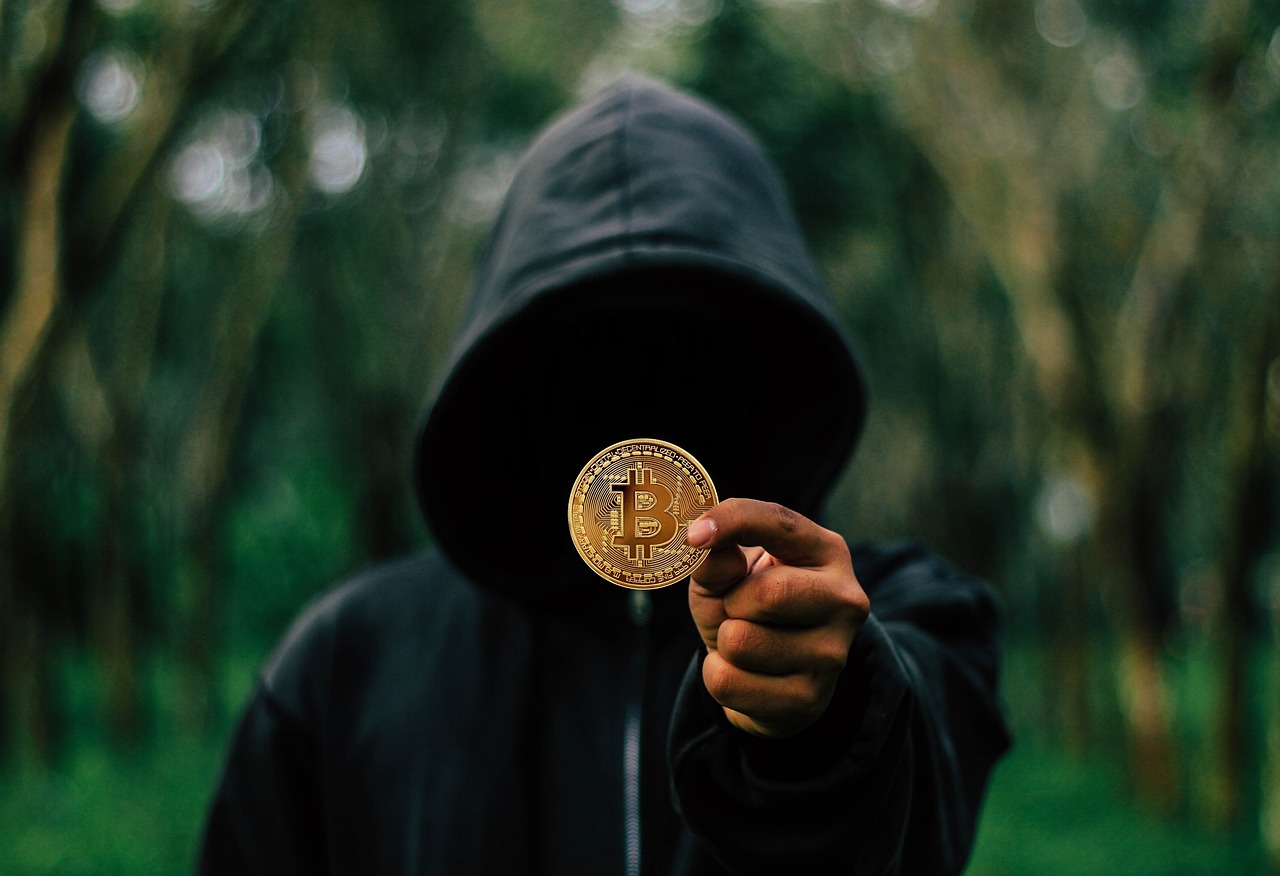
Transparency and Traceability
In the world of fair trade, transparency and traceability are not just buzzwords; they are essential pillars that uphold the integrity of the entire system. Imagine being able to track your coffee from the moment it’s picked in a small farm in Colombia to the cup you sip in your favorite café. This is the kind of clarity that blockchain technology can provide. By utilizing a decentralized digital ledger, blockchain enables every transaction to be recorded in a way that is immutable and easily accessible. This means that consumers can verify the origins of their products, ensuring that they are indeed supporting ethical practices.
The concept of transparency in fair trade is crucial for building trust between producers and consumers. When producers know that their practices are being monitored and verified, they are more likely to adhere to fair trade standards. For consumers, being able to access detailed information about the supply chain fosters a sense of connection and responsibility. They are not just buying a product; they are investing in a story—a story that reflects ethical sourcing, fair wages, and sustainable practices.
Traceability goes hand-in-hand with transparency. With blockchain, every step of the supply chain is documented, allowing for a comprehensive audit trail. This means that if a consumer wants to know where their chocolate bar came from, they can trace it back to the specific farm and even the farmer who harvested the cocoa beans. This level of detail not only enhances consumer confidence but also holds producers accountable for their practices.
To illustrate the impact of transparency and traceability, consider the following table that compares traditional supply chains with blockchain-enabled supply chains:
| Aspect | Traditional Supply Chain | Blockchain Supply Chain |
|---|---|---|
| Transparency | Limited visibility | Full visibility for all parties |
| Traceability | Difficult to trace origins | Easy to trace back to the source |
| Accountability | Hard to enforce | Built-in accountability through records |
| Consumer Trust | Variable | High due to verifiable data |
By implementing blockchain technology, fair trade initiatives can not only improve their operational efficiencies but also significantly enhance consumer trust. Imagine walking into a store and knowing that every product you buy has been ethically sourced and fairly traded. This is not just a dream; it’s a reality that blockchain can help create. The ability to verify the journey of a product empowers consumers to make more informed choices, ultimately leading to a greater demand for fair trade goods.
In conclusion, the integration of blockchain technology into fair trade practices heralds a new era of transparency and traceability. It allows consumers to have a direct line of sight into the supply chain, fostering trust and encouraging ethical consumerism. As we move forward, it’s crucial for stakeholders in the fair trade movement to embrace these innovations, ensuring that the benefits of fair trade reach those who need it most—the producers and their communities.
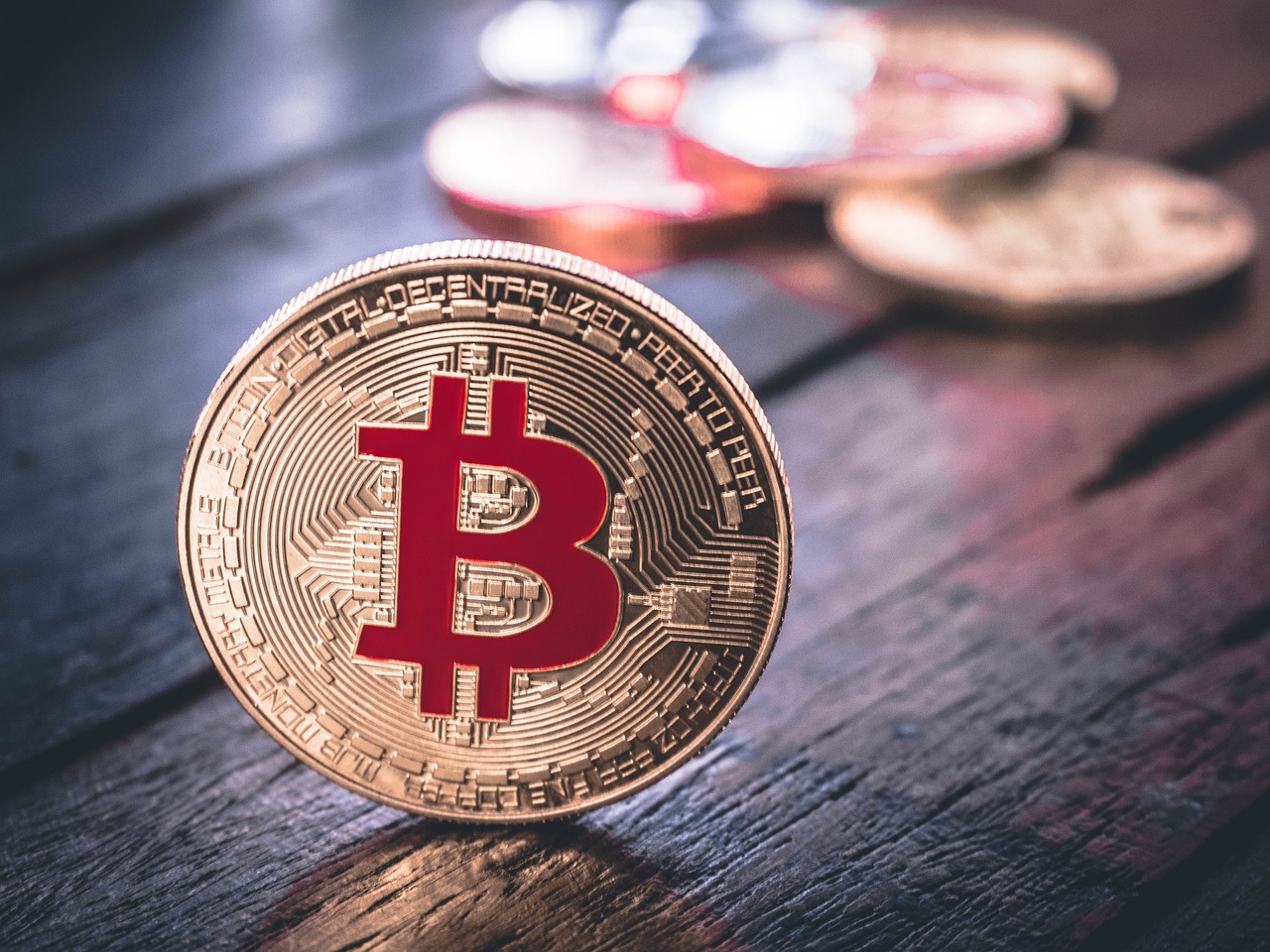
Smart Contracts
In the realm of blockchain technology, stand out as a revolutionary feature that has the potential to transform fair trade practices. Imagine a world where agreements are not just verbal or written on paper, but are encoded in a way that automatically enforces compliance. This is precisely what smart contracts do. They are self-executing contracts with the terms of the agreement directly written into lines of code. This means that once the conditions are met, the contract executes automatically without the need for intermediaries. Isn’t that fascinating?
With smart contracts, fair trade organizations can ensure that producers receive fair compensation as soon as their products reach the market. For instance, if a farmer sells organic coffee beans, a smart contract can be programmed to release payment immediately upon confirmation of delivery. This seamless transaction process not only enhances trust but also significantly reduces the risk of fraud and miscommunication.
Moreover, smart contracts can help maintain adherence to fair trade standards by automating compliance checks. For example, if a supplier does not meet the ethical sourcing criteria, the smart contract can automatically halt the transaction and notify both parties. This level of transparency is crucial in fair trade, where ethical practices are paramount. By eliminating human error and bias, smart contracts foster a more equitable trading environment.
Let’s take a closer look at the key benefits of smart contracts in fair trade:
- Automation: By automating transactions, smart contracts minimize delays and ensure timely payments.
- Transparency: All parties involved can access the same information, reducing disputes and enhancing trust.
- Cost Efficiency: Eliminating intermediaries leads to lower transaction costs, benefiting both producers and consumers.
- Security: The decentralized nature of blockchain means that once a smart contract is deployed, it is nearly impossible to alter, ensuring the integrity of the agreement.
However, while the advantages are clear, it’s also essential to recognize the challenges that come with implementing smart contracts in fair trade. Issues such as the need for a reliable internet connection in remote areas and the complexity of coding contracts can pose significant barriers. Nevertheless, as technology advances and awareness grows, these challenges can be addressed, paving the way for a more inclusive and efficient fair trade system.
In conclusion, smart contracts represent a significant leap forward in the fair trade movement. By automating and enforcing agreements, they not only enhance trust and transparency but also empower producers, ensuring they receive fair compensation for their hard work. With the right implementation, smart contracts could very well be the key to unlocking a more equitable trading future.
1. What are smart contracts?
Smart contracts are self-executing contracts with the terms directly written into code, allowing for automatic execution when conditions are met.
2. How do smart contracts benefit fair trade?
They enhance transparency, reduce transaction costs, automate payments, and ensure compliance with fair trade standards.
3. Are there any challenges with using smart contracts?
Yes, challenges include the need for reliable internet access, the complexity of coding contracts, and ensuring all parties understand the technology.
4. Can smart contracts be modified once deployed?
Once deployed on the blockchain, smart contracts cannot be altered, which ensures the integrity of the agreement.

Decentralized Marketplaces
Imagine a world where producers can sell their goods directly to consumers without the need for middlemen. This is the promise of , a revolutionary concept powered by blockchain technology. In traditional trade systems, intermediaries often take a significant cut of the profits, which can leave producers—especially those in developing countries—at a disadvantage. By eliminating these middlemen, decentralized marketplaces empower producers to retain a larger share of their earnings, ensuring that they can invest back into their communities and improve their livelihoods.
At the core of these decentralized platforms is the blockchain, which serves as a transparent and immutable ledger. This means that every transaction is recorded in a way that cannot be altered or erased, fostering trust between producers and consumers. When a consumer purchases a product, they can trace its journey from farm to table, knowing exactly who grew it and under what conditions. This level of transparency not only enhances consumer trust but also encourages ethical purchasing decisions. Consumers today are more informed and conscious about where their products come from, and they want to support businesses that align with their values.
Moreover, decentralized marketplaces often operate on a peer-to-peer basis, allowing for direct communication and negotiation between producers and consumers. This can lead to more personalized experiences and better prices for both parties. For instance, a coffee farmer can connect directly with a coffee shop owner, discussing the nuances of their product and agreeing on a price that reflects its true value. This direct relationship not only strengthens community ties but also fosters a sense of accountability and responsibility among all parties involved.
However, it's essential to recognize that while decentralized marketplaces offer many advantages, they also come with their own set of challenges. For instance, the technology itself can be complex, and not all producers may have the necessary digital literacy to navigate these platforms effectively. Additionally, there may be concerns about the security and reliability of transactions in a decentralized environment. Thus, education and support are crucial to ensure that all producers can benefit from this innovative approach.
As we look to the future, the potential for decentralized marketplaces in the fair trade movement is immense. By leveraging blockchain technology, these platforms can create a more equitable trading system that prioritizes the needs of producers while satisfying the ethical demands of consumers. The result is a win-win scenario where everyone involved can thrive.
- What is a decentralized marketplace? A decentralized marketplace is a platform that allows buyers and sellers to interact directly without intermediaries, often utilizing blockchain technology for transparency and security.
- How does blockchain improve trust in fair trade? Blockchain enhances trust by providing a transparent and immutable record of transactions, allowing consumers to verify the origins and conditions of products they purchase.
- What are the challenges of decentralized marketplaces? Challenges include the need for digital literacy among producers, security concerns, and the complexity of the technology itself.
- Can decentralized marketplaces benefit consumers? Yes, consumers can benefit from better prices, more direct relationships with producers, and the assurance that their purchases support ethical practices.

Empowering Producers
In the world of fair trade, one of the most exciting prospects of blockchain technology is its potential to empower producers. Imagine a farmer in a remote village who has worked tirelessly to cultivate organic coffee beans. Traditionally, this farmer might have limited access to markets and fair pricing due to the presence of multiple intermediaries. However, with blockchain, the game changes dramatically. By leveraging this technology, producers can gain direct access to consumers, ensuring that they receive a fair price for their hard work.
Blockchain enables producers to take control over their products, from the moment they are harvested to the point they reach the consumer's hands. This level of control not only enhances their earning potential but also fosters a sense of ownership and pride in their work. With every transaction recorded on a decentralized ledger, producers can showcase the journey of their products, proving their authenticity and ethical sourcing. This transparency not only boosts their reputation but also builds trust with consumers who are increasingly looking for ethical choices.
Moreover, financial inclusion is a crucial aspect of empowering producers. Many small-scale farmers face challenges in accessing traditional banking services. Blockchain can bridge this gap by providing them with alternative financial solutions, such as cryptocurrency payments and microloans. These options can help producers invest in better tools, sustainable practices, and even education for their families. By enabling easier access to funds, blockchain can uplift entire communities, transforming their economic landscape.
Additionally, the use of smart contracts on the blockchain can further enhance this empowerment. These contracts automatically execute agreements when predefined conditions are met, ensuring that producers receive payments promptly and fairly. For instance, a smart contract could stipulate that a farmer receives payment as soon as their goods are delivered and verified. This eliminates the uncertainty and delays often associated with traditional payment methods, allowing producers to plan their finances more effectively.
As we look towards the future, the impact of blockchain on empowering producers in the fair trade sector is profound. It is not just about better profits; it's about creating a more equitable system where producers are recognized for their contributions. By cutting out the middlemen and enabling direct connections between producers and consumers, blockchain paves the way for a more sustainable and just market.
- How does blockchain improve financial access for producers? Blockchain provides alternative financial solutions, such as cryptocurrency payments and microloans, helping producers invest in their businesses.
- What are smart contracts? Smart contracts are self-executing contracts with the terms of the agreement directly written into code, ensuring timely and fair transactions.
- Can blockchain really ensure fair pricing for producers? Yes, by eliminating intermediaries and enabling direct sales, blockchain can help producers negotiate better prices for their products.
- How does blockchain enhance transparency in fair trade? Blockchain records every transaction on a decentralized ledger, allowing consumers to trace the origins of products and verify their ethical sourcing.

Challenges and Limitations
While the potential of blockchain technology in supporting fair trade initiatives is exciting, it is essential to acknowledge the that accompany its implementation. First and foremost, scalability is a significant concern. As the number of transactions increases, the existing blockchain networks can become congested, leading to slower processing times and increased transaction costs. Imagine trying to fit an ever-growing crowd into a small room; eventually, the space becomes too cramped to accommodate everyone comfortably.
Another critical issue is energy consumption. The process of mining and maintaining blockchain networks can be incredibly energy-intensive. For instance, Bitcoin mining has been criticized for its substantial carbon footprint. This raises questions about the sustainability of using such technologies in fair trade, where environmental consciousness is paramount. The irony here is palpable; while blockchain aims to promote ethical practices, its energy demands could contradict these values.
Moreover, regulatory issues pose a significant hurdle. Each country has its own set of regulations regarding blockchain technology, which can create a complex landscape for organizations looking to leverage it for fair trade. Navigating these legal frameworks can be daunting, and a lack of clear guidelines can lead to confusion and hesitation among stakeholders. For fair trade organizations, ensuring compliance while innovating with blockchain technology is akin to walking a tightrope—one misstep could have serious consequences.
Despite these challenges, it is important to remain optimistic. Many organizations are actively working to address these limitations through research and collaboration. For example, some are exploring layer two solutions that can enhance scalability without compromising security. Others are investing in renewable energy sources to mitigate the environmental impact of blockchain operations. By fostering partnerships between tech developers, fair trade organizations, and regulatory bodies, we can pave the way for a more sustainable and efficient implementation of blockchain in fair trade practices.
In summary, while blockchain presents exciting opportunities for enhancing transparency and trust in fair trade, it is not without its challenges. Addressing these limitations will require a concerted effort from all stakeholders involved. Only then can we unlock the full potential of this transformative technology in the realm of fair trade.
- What are the main challenges of using blockchain in fair trade?
The main challenges include scalability, energy consumption, and regulatory compliance. Each of these factors can hinder the effective implementation of blockchain technology in fair trade initiatives. - How can blockchain enhance transparency in fair trade?
Blockchain provides a decentralized ledger that allows for real-time tracking of products from producers to consumers, ensuring that all parties can verify the origin and quality of goods. - What is the role of smart contracts in fair trade?
Smart contracts automate and enforce agreements on the blockchain, ensuring compliance with fair trade standards and facilitating secure transactions between producers and buyers. - Can blockchain help empower marginalized producers?
Yes, by providing direct access to markets and greater control over their products and earnings, blockchain can enhance financial inclusion for marginalized communities.

Regulatory Compliance
When it comes to implementing blockchain technology in fair trade initiatives, is a critical aspect that cannot be overlooked. The complexity of navigating various legal frameworks can pose significant challenges for organizations aiming to leverage blockchain for ethical trading. In many countries, regulations surrounding blockchain technology are still evolving, which can create uncertainty for fair trade organizations. They must ensure that their practices align with both local and international laws while also adhering to the principles of fair trade.
One of the primary concerns is the data privacy regulations. With blockchain's inherent transparency, organizations must find a balance between transparency and the privacy rights of producers and consumers. For instance, the European Union's General Data Protection Regulation (GDPR) imposes strict rules on how personal data is collected, stored, and processed. Fair trade organizations using blockchain must ensure that they comply with these regulations while still providing the necessary transparency to build trust among consumers.
Additionally, there are concerns regarding financial regulations. Blockchain can facilitate direct transactions between producers and consumers, but this can also raise questions about compliance with anti-money laundering (AML) and know-your-customer (KYC) regulations. Organizations must implement robust systems to verify the identities of users and ensure that transactions are not being used for illicit purposes. This can involve integrating traditional financial compliance measures into blockchain systems, which can be a daunting task.
Furthermore, as blockchain technology continues to evolve, regulatory bodies are also adapting. This means that fair trade organizations must stay informed about changes in legislation that could impact their operations. Regular engagement with policymakers and industry stakeholders can help organizations navigate the regulatory landscape effectively. By participating in discussions and advocating for clear regulations that support blockchain in fair trade, organizations can help shape a favorable environment for ethical trading practices.
To address these challenges, many fair trade organizations are forming alliances and partnerships with technology providers and legal experts. This collaborative approach not only enhances their understanding of regulatory requirements but also fosters innovation in compliance solutions. By working together, they can develop frameworks that ensure compliance while maximizing the benefits of blockchain technology.
In conclusion, while regulatory compliance presents challenges for the integration of blockchain in fair trade, it also offers opportunities for organizations to innovate and lead in ethical trading practices. By prioritizing compliance and engaging with regulatory bodies, fair trade organizations can pave the way for a more transparent and equitable trading system.
- What is regulatory compliance in blockchain? Regulatory compliance in blockchain refers to adhering to laws and regulations that govern the use of blockchain technology, ensuring that organizations operate within legal frameworks.
- How can fair trade organizations ensure compliance? Fair trade organizations can ensure compliance by staying informed about relevant regulations, implementing robust identity verification processes, and engaging with legal experts.
- What are the main challenges of regulatory compliance? The main challenges include data privacy concerns, financial regulations, and the evolving nature of blockchain laws.
- Why is compliance important for fair trade? Compliance is crucial for maintaining trust with consumers and producers, ensuring that fair trade practices are upheld and that organizations operate ethically.

Future of Blockchain in Fair Trade
As we look ahead, the future of blockchain technology in fair trade appears not only promising but also transformative. The intersection of these two realms could redefine how we perceive and engage with ethical trading practices. Imagine a world where every product you buy comes with an unbreakable chain of information detailing its journey from producer to consumer. This is the potential of blockchain, and it's not just a distant dream—it's rapidly becoming a reality.
One of the most exciting prospects is the increasing collaboration between technology developers and fair trade organizations. By working together, they can create innovative solutions that enhance the visibility and accountability of supply chains. For instance, new platforms are emerging that leverage blockchain to create a digital passport for products, allowing consumers to trace their purchases back to the source. This level of transparency not only builds trust but also encourages more consumers to choose ethically sourced products.
Moreover, the ongoing advancements in blockchain technology are addressing some of the current limitations. As scalability improves, we can expect to see a broader adoption of blockchain across various sectors of fair trade. This means that small producers in developing countries will have access to secure and efficient systems that empower them to manage their businesses better. By reducing transaction costs and eliminating intermediaries, blockchain can ensure that a larger share of profits goes directly to the producers.
In addition, the integration of smart contracts within blockchain systems will further streamline operations. These self-executing contracts can automate payments and compliance checks, ensuring that all parties meet their obligations without the need for costly intermediaries. This not only enhances efficiency but also minimizes the risk of disputes, fostering a more harmonious trading environment.
However, it's essential to remain realistic about the challenges ahead. While the potential is vast, issues such as regulatory compliance and energy consumption must be addressed. Fair trade organizations need to engage with policymakers to shape regulations that support blockchain initiatives while safeguarding ethical standards. A proactive approach will be crucial in navigating these complexities.
Looking forward, we can anticipate a growing number of decentralized marketplaces that connect producers directly with consumers. These platforms will not only democratize access to markets but also create a community of conscious consumers who prioritize ethical sourcing. Imagine being able to buy your coffee directly from a cooperative of farmers in Colombia, knowing that your purchase directly impacts their livelihood. This is the kind of future that blockchain can help facilitate.
In conclusion, the future of blockchain in fair trade is filled with possibilities. As technology continues to evolve and partnerships strengthen, we can expect to see a more equitable trading landscape. The journey may have its bumps, but the vision of a transparent, fair, and sustainable system is within our reach. Are you ready to be part of this revolution?
- What is blockchain technology?
Blockchain is a decentralized digital ledger that securely records transactions across multiple computers, ensuring transparency and security.
- How does blockchain enhance fair trade?
By providing transparency, traceability, and reducing intermediaries, blockchain empowers producers and fosters trust among consumers.
- What are smart contracts?
Smart contracts are self-executing agreements with the terms of the contract directly written into code, automating processes and ensuring compliance.
- What challenges does blockchain face in fair trade?
Challenges include regulatory compliance, energy consumption, and scalability, which need to be addressed for broader adoption.
Frequently Asked Questions
- What is fair trade?
Fair trade is a movement that promotes equitable trading conditions for producers in developing countries. It aims to ensure that these producers receive fair prices for their goods, which helps improve their livelihoods and promotes sustainable practices.
- How does blockchain enhance fair trade?
Blockchain enhances fair trade by providing transparency and traceability in supply chains. It allows consumers to verify the origins of products, thereby building trust in the fair trade system and ensuring that producers are treated fairly.
- What are smart contracts, and how do they work in fair trade?
Smart contracts are self-executing contracts with the terms of the agreement directly written into code. In fair trade, they automate and enforce compliance with standards, ensuring that transactions between producers and buyers are carried out as agreed without the need for intermediaries.
- Can blockchain help producers gain more control over their earnings?
Absolutely! Blockchain technology empowers producers by giving them direct access to consumers, allowing them to set their prices and retain more of their earnings. This can significantly enhance financial inclusion for marginalized communities involved in fair trade.
- What challenges does blockchain face in fair trade initiatives?
Blockchain faces several challenges, including scalability issues, high energy consumption, and complex regulatory frameworks. These limitations can hinder the widespread adoption of blockchain in fair trade practices.
- How can fair trade organizations navigate regulatory compliance with blockchain?
Fair trade organizations can navigate regulatory compliance by working closely with legal experts to understand the frameworks applicable to blockchain. They can also collaborate with regulators to ensure that their blockchain applications align with existing laws and standards.
- What does the future hold for blockchain in fair trade?
The future of blockchain in fair trade looks bright! With ongoing innovations and collaborations, we can expect to see more decentralized marketplaces and enhanced transparency, which will further strengthen fair trade practices worldwide.

